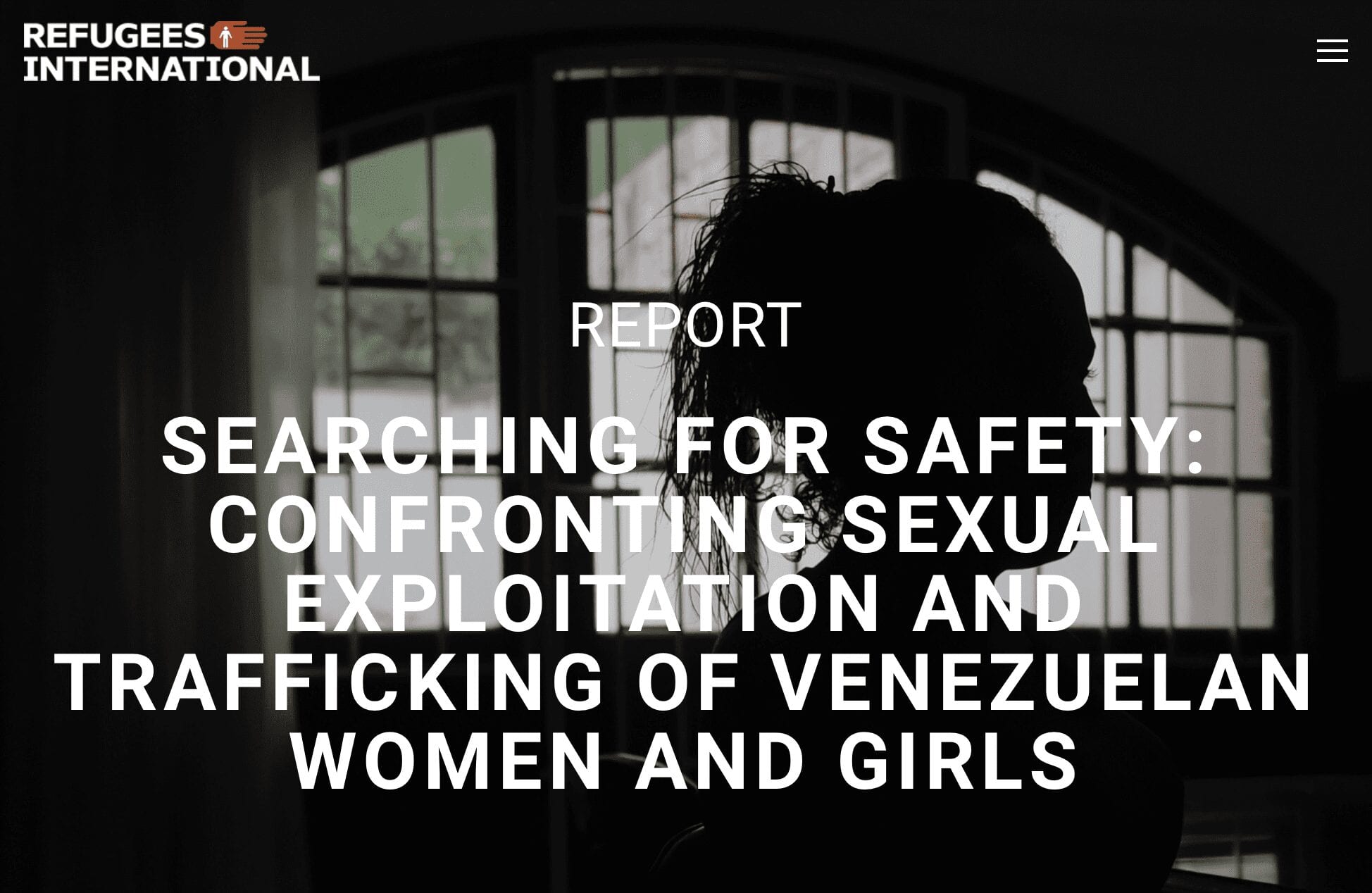
Searching for Safety: Confronting the Sexual Exploitation and Trafficking of Venezuelan Women and Girls
When people are forced to flee their homes, they are at greater risk of exploitation. Human trafficking has been a persistent problem in Latin America and the Caribbean. However, the continuing exodus of Venezuelans—the largest in recent history in the Western Hemisphere—demands urgent and increased attention to human trafficking prevention and response.
As of June 2019, more than 4 million Venezuelans have fled the economic and political chaos of their country. As of June 2019, more than 4 million Venezuelans have fled the economic and political chaos of their country. Access to food, water, and medicine is severely limited, and public services are breaking down. Victimized by widespread crime and targeted political persecution, Venezuelans continue to flee the country in search of safety and to meet some of their most basic needs.
The large numbers of Venezuelans seeking refuge in neighboring countries are straining the capacity of some regional governments to cope. Countries like Colombia and Ecuador, which have experience in responding to internal displacement or hosting refugees, are being challenged by the sheer size of the Venezuelan caseload. Other countries like Trinidad and Tobago and Curaçao are struggling to set up even the most basic systems of international protection. When resources within Venezuela are scarce and options to seek safety and economic opportunities outside of Venezuela shrink, the threat of human trafficking becomes more acute.
The majority of victims of trafficking (VoTs) detected globally are women and girls, and while not true in certain regions, overall, trafficking for the purposes of sexual exploitation is the most common form. It is important to note that men and boys are also victims of all forms of trafficking and that labor trafficking has also been reported as a problem for Venezuelans in the region. However, this report focuses on women and girls for two reasons. First, the number of reported female Venezuelan victims is on the rise. Second, women and girls face distinct risks.
Over the last year, Refugees International has carried out field research on the plight of Venezuelan refugees and migrants in four countries: Colombia, Ecuador, Trinidad and Tobago, and Curaçao. In all four countries, a few key themes have emerged. First, if Venezuelans have safe and legal pathways to enter host countries, they will be less likely to fall into the hands of traffickers. Second, regularizing the status of Venezuelans already within a host country is vital if victims are to feel safe in reporting incidents of trafficking to the authorities. Third, without the right to work, displaced Venezuelans are at a higher risk of falling prey to exploitative situations to survive financially.
Read the report here.
